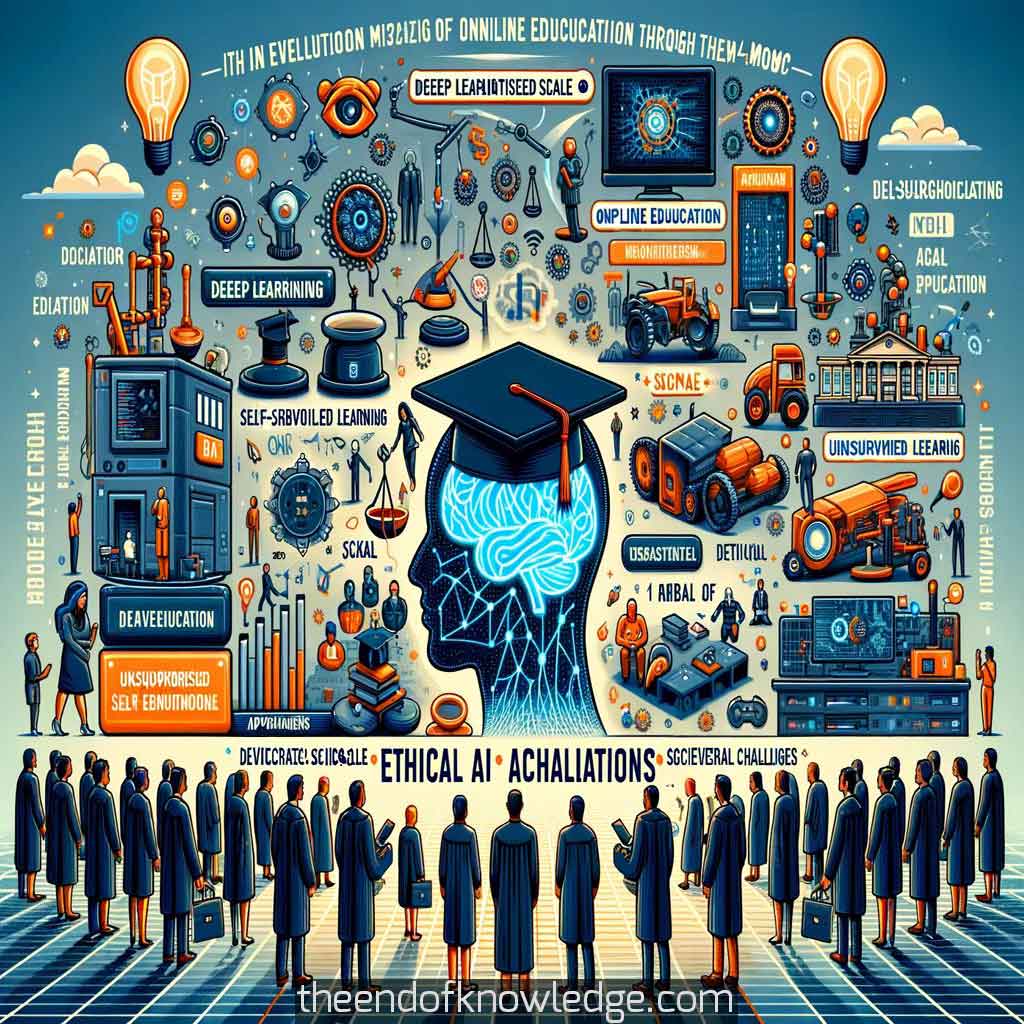 >
>
Concept Graph (using Gemini Ultra + Claude3):
Custom ChatGPT resume of the OpenAI Whisper transcription:
1.- Andrew Ng's Impact: Andrew Ng is a prominent figure in AI, co-founding Coursera and Google Brain, launching Deep Learning AI, Landing AI, and the AI Fund, and serving as Baidu's chief scientist. His work has significantly influenced AI education and innovation.
2.- Early Inspiration: Ng's interest in computer science began in childhood, inspired by programming simple games and reading about expert systems and neural networks. These early experiences sparked his passion for automation and AI, themes that have characterized his career.
3.- Education Automation: Ng's work in education, particularly through MOOCs (Massive Open Online Courses), aimed at automating aspects of teaching to reach a broader audience. This was partly motivated by his experience teaching at Stanford, where he saw the potential for recorded lectures to save time and enhance student interaction.
4.- Challenges and Innovations in Online Education: The creation of MOOCs involved overcoming significant challenges, including tight schedules and the need to produce high-quality content quickly. Ng's commitment to making education accessible and impactful drove the success of these online courses.
5.- Importance of Scale in Deep Learning: Ng highlights the critical role of scale in improving deep learning models. His work with the Google Brain team demonstrated that larger models and datasets could significantly enhance performance, a principle that has guided much of the progress in AI.
6.- Unsupervised and Self-supervised Learning: Despite the success of supervised learning, Ng believes in the potential of unsupervised and self-supervised learning to unlock further advancements in AI. He views these areas as promising frontiers for research and application.
7.- Practical Application of Deep Learning: Ng emphasizes the importance of practical application and the ability to debug and optimize deep learning models efficiently. He advocates for a hands-on approach, where students learn by doing and gain experience with real-world problems.
8.- Broadening the AI Talent Pool: Ng is passionate about democratizing access to AI education, aiming to equip people from diverse backgrounds with AI skills. He believes in the potential of AI to benefit various fields and encourages interdisciplinary learning.
9.- Future of AI Development: Ng envisions a future where a large proportion of developers will have AI skills. He anticipates that understanding machine learning will become as fundamental as cloud computing knowledge is today.
10.- Deep Learning Education and deeplearning.ai: Through deeplearning.ai, Ng has developed courses to help people enter the field of AI, focusing on making complex concepts accessible to those with basic programming and math skills.
11.- Deep Learning Specialization Prerequisites: The deep learning specialization requires basic programming knowledge, especially in Python, and a foundational understanding of mathematics, excluding calculus. High school level math and a grasp of basic linear algebra are sufficient, making the courses accessible to a broad audience.
12.- Learning Approach in Deep Learning Specialization: The specialization covers core deep learning concepts, from neural network foundations to advanced models like RNNs and attention mechanisms. It emphasizes practical skills for building and deploying models, including troubleshooting techniques like handling overfitting and decision-making on data collection.
13.- Challenges in Deep Learning Education: A significant challenge in deep learning education is the hierarchical nature of concepts, where advanced topics build on basic ones. Ng's strategy involves breaking down complex ideas into manageable parts to enhance understanding and application in real-world scenarios.
14.- Reinforcement Learning in Education: Ng discusses the educational value of reinforcement learning (RL), noting its inspiring effect on students despite its limited practical applications outside gaming. He advocates for a balanced approach in AI education, incorporating RL while focusing on more widely applicable techniques.
15.- AI Fund and Entrepreneurship: Ng founded AI Fund to systematically create AI startups, aiming to address practical challenges and generate social good. He emphasizes the importance of outcome-driven and customer-centric approaches in entrepreneurship, ensuring projects align with societal benefits.
16.- AI's Impact Across Industries: Ng believes AI's next significant phase is transforming sectors outside software and internet, such as manufacturing and agriculture, highlighting the potential for substantial economic growth and efficiency improvements.
17.- Challenges in Integrating AI in Traditional Industries: Transitioning from manual to AI-driven processes in industries like manufacturing involves overcoming practical challenges, such as small data sets and environmental changes that affect model performance, emphasizing the need for robust and adaptable solutions.
18.- Starting Small with AI Projects: Based on Google Brain's experience, Ng recommends starting AI integration with small-scale projects to build confidence and learn essential lessons, gradually expanding to more significant applications as success and understanding grow.
19.- AI and Societal Impacts: Ng expresses concern over issues like AI-induced bias and wealth inequality, advocating for addressing current challenges over speculative future problems. He emphasizes the need for responsible AI development that considers ethical implications and societal benefits.
20.- AI for Good and Personal Fulfillment: Reflecting on his career and personal life, Ng finds the most satisfaction in helping others and advancing societal progress through AI. He encourages focusing on work that has the potential to significantly benefit others, aligning personal success with societal improvement.
Interview byLex Fridman| Custom GPT and Knowledge Vault built byDavid Vivancos 2024